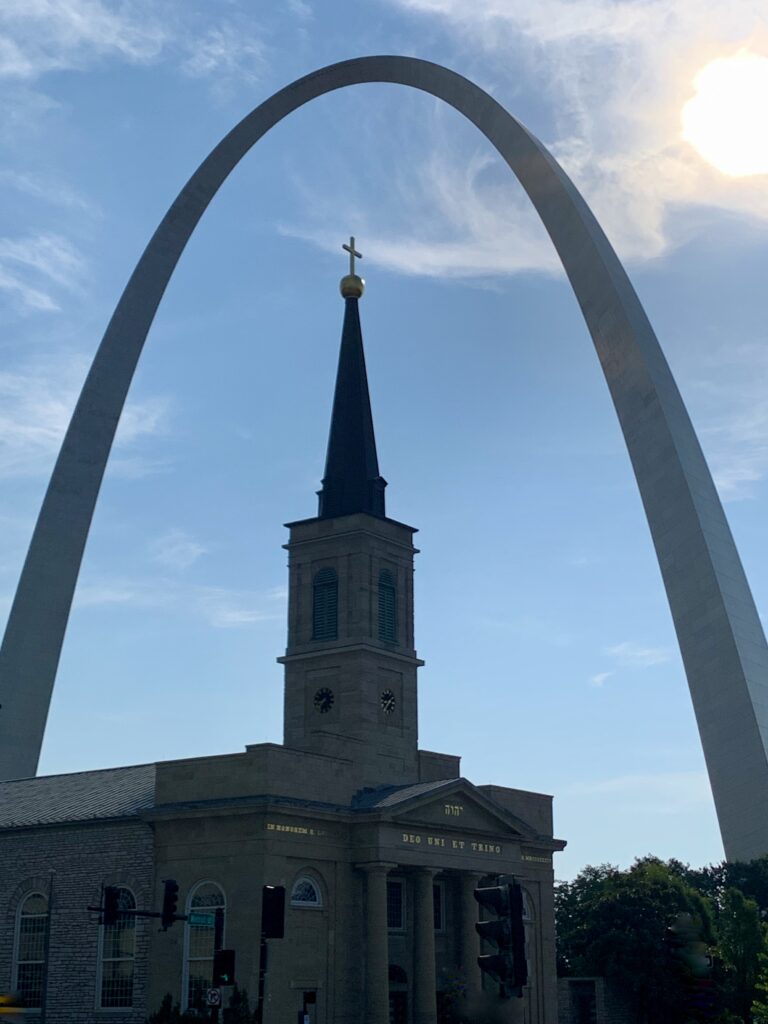“What good is it, my brothers, if someone says he has faith but does not have works? Can that faith save him? If a brother or sister is poorly clothed and lacking in daily food, and one of you says to them, “Go in peace, be warmed and filled,” without giving them the things needed for the body, what good is that? So also faith by itself, if it does not have works, is dead.” (James 2:14–17)
Essential?
As state and local governments imposed increasingly strict rules regarding public gatherings in response to the rapidly spreading coronavirus pandemic this past spring, churches found themselves facing a difficult position. “Essential” businesses were somewhat exempt from the closures, but most states did not classify churches as “essential.” While most churches and pastors submitted to the guidance (and thanks to the blessings of modern technology were able to continue worshipping online or in outdoor settings), the restrictions chafed, particularly the determination that churches were not “essential.” To be honest, for many of us pastors, it chafed because the government was saying out loud what most of us have been feeling for a long time. It’s one thing to feel like you don’t matter… it’s entirely different when someone else says it.
As Virginia and many other states have begun reopening and churches, including ours, have resumed in-person worship, this question briefly moved to the background. But as the COVID-19 numbers continue to increase rapidly, many people think it’s just a matter of time before public gatherings are again restricted. Additionally, the Supreme Court recently ruled on a case in Nevada that imposed tighter regulations on churches than on casinos. In his minority dissent, Justice Gorsuch wrote, “In Nevada, it seems, it is better to be in entertainment than religion. Maybe that is nothing new. But the First Amendment prohibits such obvious discrimination against the exercise of religion.” This has returned the question of whether churches are essential or not to the foreground.
The Essential Church?
What is it that makes a church “essential”? Frankly, it doesn’t (or shouldn’t) matter what any government says. The Church is not subject to the government, but to Christ. The First Amendment doesn’t give the Church its authority or make it essential, it merely affirms and protects the authority given through Christ to the Church. As Edmund Clowney writes, “The great mark of the church is in the message it proclaims: the gospel of salvation from sin and eternal death through the cross and the resurrection of Jesus Christ, who alone is the Way, the Truth and the Life.” (The Church, pg 103). The proclamation of this message comes through what we say and what we do. We proclaim the Gospel through our words by preaching and sharing our testimony and lives with others. We proclaim the Gospel through our actions by the administration of the sacraments (Baptism and the Lord’s Supper) and acts of service and ministry in which we love our neighbors as ourselves and care for “the orphans and widows” (James 1:27). It is my belief that we, the church in general, have become “non-essential” because we have failed to love and serve our communities well in Jesus’ name. A question I often ask myself and the Session is this: “If Northminster (both the building and the congregation) were to disappear from the corner of Clearview Road and Route 29, would anyone notice?” If the answer to that question is “no” then we have made ourselves non-essential.
But there is another reason the Church is essential, one that likely won’t be discussed in many of these conversations. One of the roles of the church is to intercede on behalf of the world. In addition to the call to pray for governing authorities (1 Timothy 2:2), there’s the example of Abraham’s intercession for Lot and the cities of Sodom and Gomorrah (Genesis 18:22-33). We are here to seek God’s healing and blessing for Caesar, our communities and the world. The opportunity we have through our corporate prayer on behalf of the communities and world around us is an enormous privilege and opportunity.
As we continue through this pandemic, may the question of whether Northminster is essential or not be answered, not by a government edict, but by the ongoing faithful proclamation of the Word through our words and even more through our acts of love and service to our community.
Blessings,
Rev. David Garrison
Rev. David Garrison

